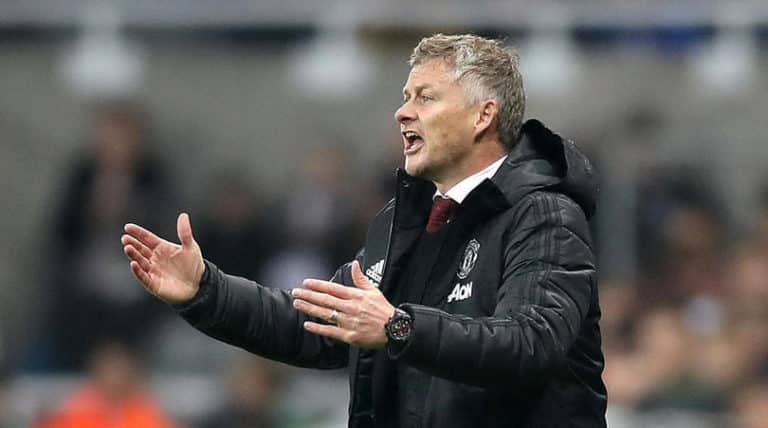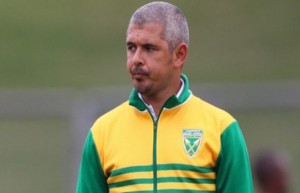Talk about Manchester United manager Ole Gunnar Solskjaer’s future has increased after Wednesday’s shock Champions League loss to Istanbul Basaksehir compounded their Premier League problems.
The Norwegian was asked about his future following the calamitous 2-1 defeat at the hands of the Group H outsiders, which has seen talk about a potential move for former Southampton and Tottenham boss Mauricio Pochettino increase.
The Champions League had been providing an escape from their Premier League difficulties as United sit 15th in the standings, which even with a game in hand is not good enough for a club of their stature.

United need to recover from last weekend’s 1-0 home loss to Arsenal and the defeat in Turkey to alleviate the pressure on the latest man attempting to bring back some of the success enjoyed under Sir Alex Ferguson.
Ahead of Saturday’s crunch trip to Everton, the PA news agency takes a look at how Solskjaer and the club’s other managers have got on in the Premier League.
David Moyes (2013-14) Matches: 34. Wins: 17. Draws. 6. Losses: 11. Win percentage: 50.0 per cent

Ferguson called time on his medal-laden career in 2013, bowing out as Premier League champion – the 13th league title he had won as United boss. David Moyes, a fellow Scot, was the man earmarked as the ideal successor but it quickly became clear that using the same approach and ideas that worked so well at Everton would not translate to Old Trafford. Moyes was sacked just 10 months into the job having only won half the league matches in charge of the reigning champions. Ryan Giggs took temporary charge of the final four matches of the season, winning two, draw one and losing the other.
Louis Van Gaal (2014-16) Matches: 76. Wins: 39. Draws. 19. Losses: 18. Win percentage: 51.3 per cent

Needing an experienced figure to get United back on track the Old Trafford giants turned to experienced Holland boss Louis Van Gaal, who took charge after leading his country to the 2014 World Cup semi-finals. The eccentric Dutchman brought smiles during his time in charge, but more down to his mannerisms, warmth and character than the on-field product. Van Gaal’s uncomfortable two-year residency was brought to an end just days after winning the FA Cup – success that was unable to mask poor Premier League performances in terms of style and substance.
Jose Mourinho (2016-19) Matches: 93. Wins: 50. Draws. 26. Losses: 17. Win percentage: 53.8 per cent

Having been overlooked for the job when Ferguson retired, the Portuguese finally got his shot in 2016 and became the first manager in United’s history to win a major trophy in his maiden season. Those Europa League, EFL Cup and Community Shield successes were followed by finishing runners-up in the Premier League and FA Cup in 2017-18, but the following campaign went awry from the outset. United had their worst points return after 17 matches in the Premier League era, with the chastening 3-1 loss at Liverpool in December 2018 proving the final straw. Jose Mourinho has the highest league win percentage of any manager to have followed Ferguson.
Ole Gunnar Solskjaer (2019-present) Matches: 65. Wins: 32. Draws. 17. Losses: 16. Win percentage: 49.2 per cent
Eyebrows were raised when the fan favourite returned to his former club as temporary successor to Mourinho, having been given the green light by Molde to take charge for the remainder of the 2018-19 campaign. An outstanding interim stint led Solskjaer to take the job on a full-time basis in March 2019, with a dreadful end to that season followed by a promising 2019-20 campaign in which they finished third in the Premier League and reached three cup semi-finals. But Solskjaer’s side have struggled for consistency for large patches of his tenure and Sunday’s loss to Arsenal, his 100th match in charge in all competitions, was his 16th loss, leaving his win percentage standing at 49.2 per cent – the worst of those to have followed in Ferguson’s footsteps.
Comparison between Ferguson and his successors

There have been 272 league matches since Ferguson retired, with United winning 140, drawing 69 and losing 63. That win percentage is just 51.5 per cent, whereas the Scot’s final 272 matches had a win percentage of 70.6 per cent. Ferguson won 192, drew 44 and lost 36 in that period – success that brings the subsequent drop off into sharp focus along with the need for vast improvements.





